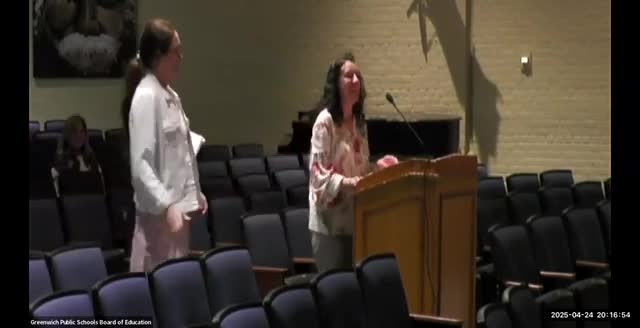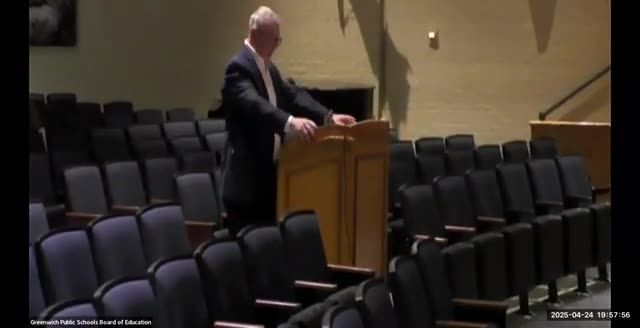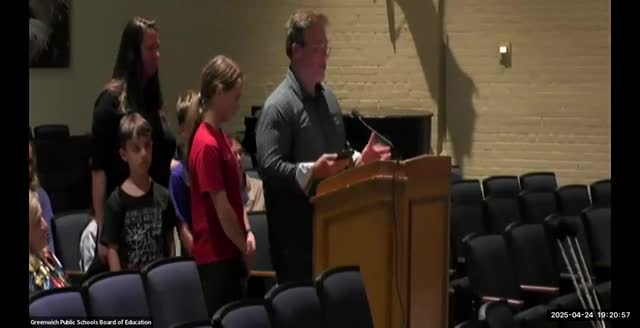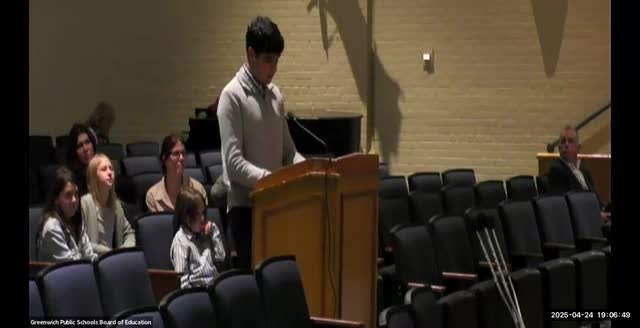Article not found
This article is no longer available. But don't worry—we've gathered other articles that discuss the same topic.

Greenwich Together presents biennial youth-survey findings; district plans public forum and focus groups

Board reviews recommended textbooks for AP Physics, AP Psychology and Spanish; administrators note discontinued editions and online licensing

Parents, students and teachers urge board to protect Advanced Learning Program amid proposed cuts

